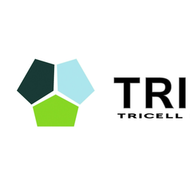
Comprised of shipping, natural resources and pharmaceutical divisions and founded by the Travis family during the Age of Exploration as Travis Trading, Tricell was a major pharmaceutical company that maintained facilities throughout the world, finding it's humble beginnings as a shipping company. Thomas Travis, a European merchant, founded the company, and later went on to have seven children. One of these children, Henry Travis, was indirectly responsible for the discovery of the Progenitor virus a full 100 years or so before it's uncovering. With Henry's impressive 72 volume book set entitled "Survey of Natural History", the scientific community largely wrote off his books, which were written from his five expeditions to Africa. With Henry's death only two years after his final expedition, his older brother spread the rumour that the set was nothing but fiction. In reality, he wanted to ensure that Travis Trading would be the only ones privy to the large amount of information within the books.
Travis Trading, with Henry's books, used the information within to great extent and gained a firm foothold on Africa and exploited the abundant mineral resources contained within. Mining, oil and natural gas fields were among these endeavours, establishing the foundation for the natural resources department of Tricell. During the mid-20th century, they had also begun to collect specimens of plants, animals and insects, also using the information within Henry's books. These specimens were applied for pharmaceutical research, bringing commercial success and laying the foundation for the pharmaceutical division of Tricell.
During the 1960's, the three divisions of Travis Trading formed the conglomerate; Tricell.
Soon enough, a secret bioweapons division was established, inspired by another pharmaceutical company, Umbrella, it's biggest rival. Following Umbrella's downfall, Tricell's sway in this area increased. Each division of Tricell (shipping, natural resources and development, and pharmaceuticals) runs on its own capital, essentially making them seperate entities under a single parent company. Other divisions also exist between Tricell's branch offices.
In 2005, they acquired the assets from WilPharma, another pharmaceutical firm that had entered bankruptcy following an outbreak of the T-virus in Harvardville. Along with WilPharma, Tricell obtained obtained samples of the G-virus and the T-Veronica virus from Albert Wesker, as well as abundant information on the T-virus and every aspect of Umbrella that Wesker was privy to.
Excella Gionne was made CEO of the African division of Tricell in 1999, and personally collaborated with Albert Weker on the Uroboros Project. Wesker used Tricell for a number of years as an asset while still working for The Organization before leaving his former employer in 2004.
Tricell was also a prominent member of the Global Pharmaceutical Consortium, and the pharmaceutical division was responsible for the funding of the Bioterrorism Security Assessment Alliance, which would later be used to gather field and combat data on Tricell's B.O.W.s.



